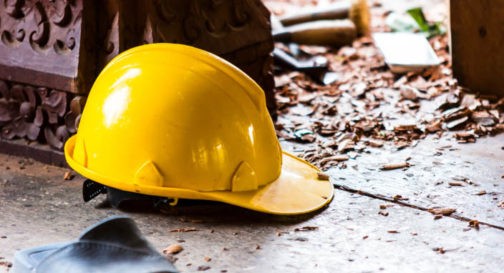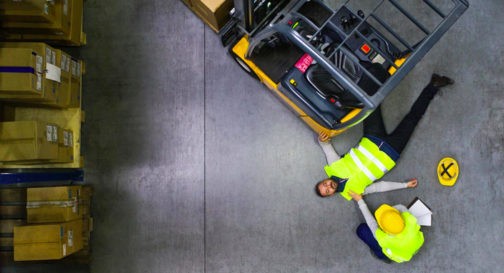Navigating Legal Claims for Shipyard Workers: Recognizing Unique Hazards and Protections
May 08, 2024
What Legal Protections Are Afforded to Injured Shipyard Workers?
Shipyard workers may be exposed to various dangerous conditions that can lead to serious injuries and illnesses. In the event of a job-related accident or disease, shipyard workers may be entitled to benefits through the Longshore and Harbor Workers Compensation Act (LHWCA) or, rarely, the Jones Act. The LHWCA is a no-fault system, meaning that workers do not have to prove that their employer was negligent to receive benefits. Instead, they must simply demonstrate that their work caused their injury or illness. Claims may be made for personal injuries, diseases caused by working conditions, and wrongful death.
Legal claims for injured shipyard workers can be significantly more complex than workers’ compensation claims for other professions. It can be overwhelming to try to navigate the claims process on your own, and you may risk overlooking crucial filing requirements, potentially endangering your claim. A knowledgeable shipyard worker accident attorney can guide you through each step of filing your claim and ensure you recover the benefits you are entitled to.
What Injury Risks Are Faced by Shipyard Workers?
Despite the stringent safety standards most employers impose, shipyard work can still be extremely hazardous. Workers face the potential of injury from heavy machinery, toxic substances, fires, explosions, and challenging working conditions. These dangers can lead to a wide range of severe and even permanently disabling injuries, including:
- Cuts, burns, and abrasions
- Bone fractures
- Traumatic brain injuries
- Internal organ damage
- Spinal injuries
- Nerve damage
- Amputations
- Vision and hearing loss
- Respiratory system damage
- Illnesses and cancers caused by exposure to harmful substances, such as asbestosis and mesothelioma
How Does the Longshore and Harbor Workers Compensation Act (LHWCA) Protect Shipyard Workers?
The Longshore and Harbor Workers’ Compensation Act (LHWCA) is a federal law that provides critical legal protections and benefits for shipyard workers and other maritime employees who are injured or become ill on the job. The LHWCA covers maritime workers such as shipyard workers, longshoremen, shipbuilders, and others who are not considered “seamen” under the Jones Act. It entitles covered workers to compensation for medical expenses, rehabilitation services, and lost wages if they are injured or become ill due to their maritime employment. The LHWCA also provides survivor benefits to the families of workers who are killed on the job, including compensation for lost wages and funeral expenses.
The U.S. Department of Labor administers the LHWCA and provides a process for workers to file claims and appeals if there are disputes over benefits. A worker must have been injured while working on navigable U.S. waters or in an adjoining area typically used for maritime activities like loading, unloading, repairing, or building vessels to qualify for LHWCA coverage. Workers filing an LHWCA claim do not have to prove fault or negligence on the part of their employer. However, shipyard workers whose injuries were intentional or caused by their own intoxication are excluded from filing a claim.
What are the Filing Deadlines for an LHWCA Claim?
Ensuring that your LHWCA claim is filed in a timely manner is vital to protecting your legal rights and recovering full compensation for your injuries. In most cases, the shipyard worker must notify their employer of their accident and injuries within 30 days. Following this notification, the worker generally has one year from the date of injury to file a formal LHWCA claim with the Department of Labor.
These deadlines may be extended if the injury did not cause immediate disability or involves an occupational disease. It is crucial to consult with an experienced maritime injury attorney as soon as possible to understand the time limits affecting your specific case. Failure to comply with the filing requirements can jeopardize your ability to recover compensation under the LHWCA.
Under What Circumstances Could the Jones Act Cover a Shipyard Worker?
The Jones Act specifically covers injured “seamen.” Seamen are defined as the captain and crew of a ship who spend at least 30% of their working hours on a vessel in navigation. Shipyard workers are generally not considered seamen due to the nature of their employment. However, in rare cases, a shipyard worker might be assigned to a vessel owned by their employer, such as a tugboat or barge. In this situation, the injured worker may be able to claim seaman status and file a direct claim for maintenance and cure or negligence against their employer under the Jones Act. A skilled Jones Act attorney can evaluate your situation and determine the claim options available to you.
Can an Injured Shipyard Worker Sue Their Employer?
The LHWCA provides benefits to most injured shipyard workers, but, like state workers’ compensation programs, it also protects employers from lawsuits. In the majority of cases, the LHWCA is the worker’s only recourse for collecting damages for their injuries. However, in the unusual circumstance that the worker is considered a seaman under the Jones Act, they may be able to sue their employer for negligence.
However, shipyards are complex and busy workplaces, and workers often have to perform their jobs alongside third-party contractors, such as vendors or construction companies. If the negligence of one of these contractors leads to an on-the-job injury for a shipyard worker, they may be entitled to file a lawsuit against them for their damages. With a personal injury lawsuit, the worker can seek economic damages, such as medical expenses and lost wages, as well as non-economic damages for pain and suffering.
How Can Experienced Legal Representation Benefit You?
Shipyard accidents can leave workers severely injured and endanger their ability to care for themselves and their families. Getting the full compensation you deserve following a work-related injury is vital to safeguarding your future. Unfortunately, these claims can often be complicated and confusing for injured workers.
An experienced maritime attorney from The Law Offices of Preston Easley can help determine which laws apply to your case and make certain your claim is filed properly. Our team can help quantify the full extent of your damages and identify all potential liable parties to maximize recovery. Contact our law firm today at 310-773-5207 to schedule a free case evaluation.










